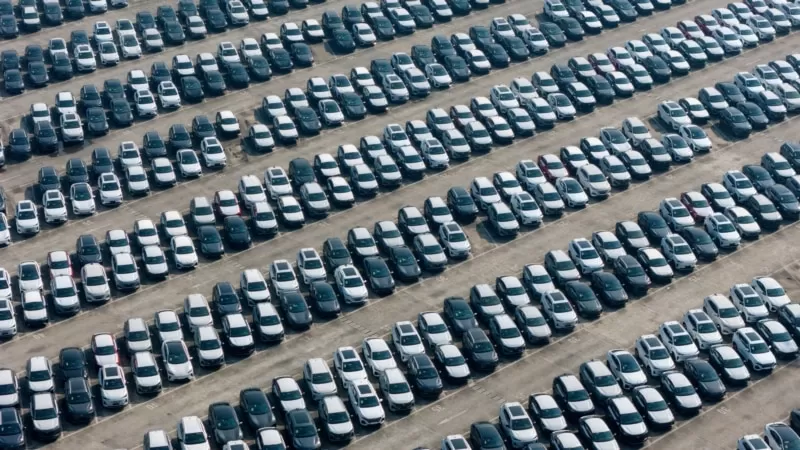China is making significant progress towards a future driven by electric vehicles (EVs), as shown in a new industry report released on Monday. According to the China Association of Automobile Manufacturers, domestic sales of all types of electric vehicles rose by 40% in 2024, while sales of gasoline-powered cars, including foreign imports, tumbled.
In 2024, China solidified its position as the world’s largest automobile market by sales, with a total of 31.4 million vehicles sold. This marked a 4.5% increase compared to the previous year. However, foreign automobile importers are facing challenges in competing with local brands in China, who offer a wide range of affordable EVs and intense market competition.
One example of this is Porsche, a German luxury car maker, who had to close several of its physical stores in China in 2024. Porsche’s sales in China saw a decline of 29% year on year, marking the third consecutive year of decline. Other luxury carmakers such as BMW, Mercedes, and Audi also experienced a drop in their vehicle sales in China in 2024, with BMW sales falling by 13.4%, Mercedes by 7%, and Audi by 11%.
Tai Chih-yen, an associate researcher at the Chung-Hua Institution for Economic Research in Taipei, explained to VOA’s Mandarin service that a sense of patriotism and support for national brands has created additional pressure for international automakers in China. He stated, “Higher-end consumers have started to abandon foreign brands and are turning to comparatively better-priced high-end domestic cars. This is not a so-called consumption downgrade, but rather a reflection of the current situation, where many are choosing to be more discreet and show their patriotism by driving domestic luxury brands.”
The industry report also highlighted that sales of traditional gasoline and diesel-powered vehicles in China declined by 17% in 2024, from 14 million to 11.6 million. This decline aligns with Beijing’s focus on transitioning to electric vehicles. At the same time, Chinese vehicle exports saw a 19.3% increase in 2024, according to the report. However, export growth is expected to slow down, with the report estimating only a 5.8% increase in 2025.
China faced backlash in 2024 as it expanded its EV sales overseas, with the U.S., Canada, and EU imposing steep tariffs to prevent a flood of cheap electric vehicles into their markets. These countries have raised concerns about the subsidies provided by the Chinese government to EV makers, which allow them to sell their cars at lower prices. They have also expressed concerns about China’s overproduction of EVs and the alleged dumping of cars into foreign markets. However, Beijing has repeatedly denied these allegations.
China argues that its EV subsidies are similar to those of other countries and that the sales of electric vehicles contribute to tackling climate change. In fact, China has filed a complaint at the World Trade Organization over the EU’s tariff decision.
The future of the automobile industry in China is undoubtedly electric. With the government’s strong support and the increasing demand for EVs, the country is on track to achieve its goal of becoming a leader in the electric vehicle market. This progress not only benefits China but also has a positive impact on the global effort to reduce carbon emissions and combat climate change.
Michael Baturin and VOA Mandarin Service reporter Nai-chuan Lin contributed to this report. Some information was obtained from Reuters. As China continues to make strides towards an EV-driven future, we can expect to see further advancements and innovations in the electric vehicle industry. The future is bright for China’s electric vehicle market, and the world is watching as it leads the way towards a more sustainable future.


